Preventing Contagious Pneumonia
Introduction
Is pneumonia contagious? People often ask this question when discussing this serious lung infection. Pneumonia is a global health issue, affecting millions of people each year. Contagious pneumonia poses a more serious threat as it can be easily transmitted from person to person. Knowing how to prevent pneumonia, especially the contagious form, is important to protect your own health and the health of others. This article will detail some effective ways to prevent contagious pneumonia.
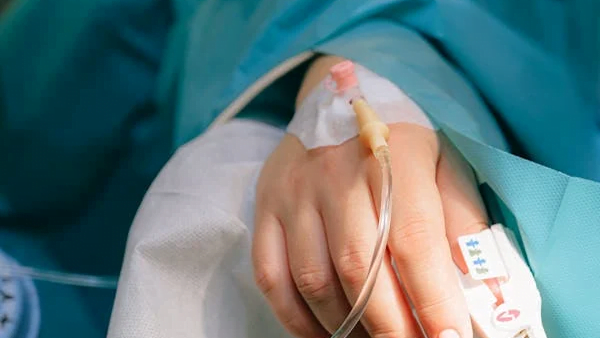
Understanding Contagious Pneumonia
Contagious pneumonia, or pneumonia that can be spread from one person to another, is most commonly caused by bacteria, viruses or fungi. The germs that cause pneumonia are usually inhaled and can be easily spread through respiratory droplets released by an infected individual through coughing or sneezing. So the answer to the question “Is pneumonia contagious?” is an emphatic yes, especially for those types caused by germs such as Streptococcus pneumoniae, Haemophilus influenzae and the influenza virus that causes flu-like symptoms and illnesses such as bronchitis and sinusitis due while suffering from influenza infection. Factors such as close contact with an infected individual in crowded living conditions or poor hygienic practices increases your risk of exposure and transmission. To prevent pneumonia from spreading, it’s essential to understand these factors and take appropriate measures.
Recognizing Symptoms Early
One of the best ways to prevent contagious pneumonia is to recognize its symptoms. Symptoms can include a cough that produces mucus, fever, chills, shortness of breath, chest pain and extreme fatigue. You also may feel nauseated, have a headache or experience a loss of appetite. If you wonder “is pneumonia contagious” when you or someone near you has these symptoms, know that whether they become contagious depends on the type and cause of your pneumonia.
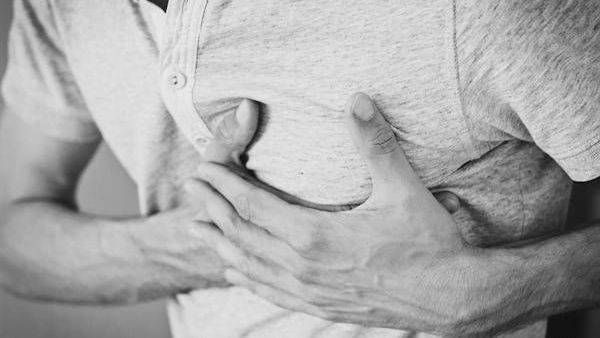
Practicing Good Hygiene
If you suspect you have pneumonia and are experiencing any of these symptoms, make an appointment with your doctor right away so they can treat it before it becomes more serious and possibly spreads.
To avoid spreading germs that can cause pneumonia
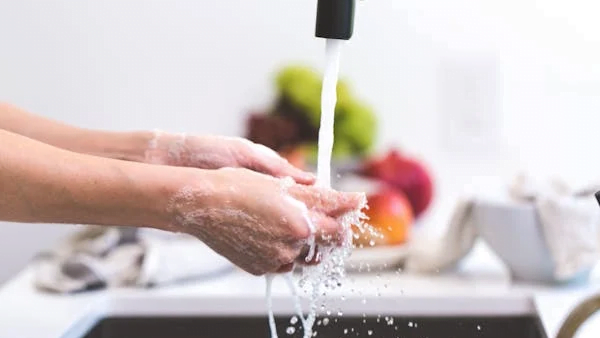
- Frequent Handwashing: Wash your hands frequently, especially after you have coughed or sneezed, and after you have been in public places. Soap your hands with soap and water for at least 20 seconds to remove germs from your skin and protect yourself against pneumonia.
- Using Hand Sanitizer: Use an alcohol-based hand sanitizer when you don’t have access to soap and water. If you use a hand sanitizer, make sure that it contains at least 60% alcohol in order to prevent contagious pneumonia as effectively as possible.
- Proper Coughing and Sneezing Etiquette: Cover your mouth and nose with a tissue or your elbow when coughing or sneezing. Throw away used tissues immediately and wash your hands afterwards to prevent the spread of germs and help prevent pneumonia.
- Avoiding Touching Your Face: Germs can enter your body through the eyes, nose, and mouth easily. Refrain from touching your face, especially with unwashed hands to reduce the risk of catching contagious pneumonia.
Vaccination: A Key Preventative Measure
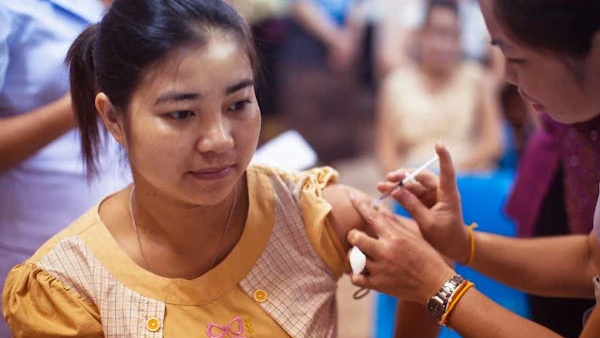
Vaccination is the best way to prevent pneumonia, or at least prevent some of the most common and deadly forms of pneumococcal disease. Dozens of vaccines are available, but these protect against some of the most common causes:
- Pneumococcal Vaccine: Influenza can lead to pneumonia, especially viral or contagious pneumonia. An annual flu shot helps prevent the flu and pneumonia from respiratory viruses.
- Influenza Vaccine: The pneumococcal vaccine protects against Streptococcus pneumoniae, which is one of the most common causes of bacterial pneumonia. It is recommended for children, older adults, and people with weakened immune systems.
- Haemophilus Influenzae Type B (Hib) Vaccine: This vaccine protects against Haemophilus influenzae, a bacterium that can cause pneumonia, especially in children.
By staying current on vaccines, you’ll lower your chances of getting the type of pneumonia most likely to spread from person to person. And you’ll also be less likely to get infected with germs that can cause pneumonia if you do get sick.
Strengthening Your Immune System
A strong immune system is the best defense against any type of infection, including pneumonia you may contract from others. Improve your immune health in the following ways:
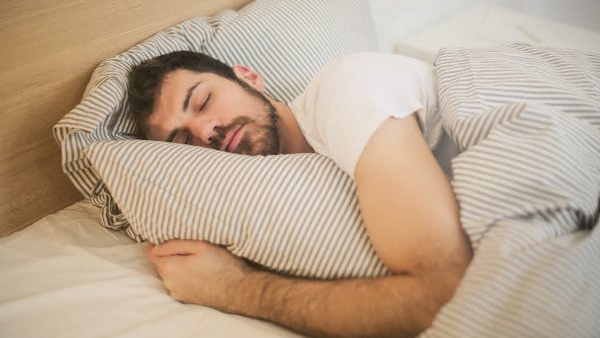
- Balanced Diet: Eat foods rich in fruits, vegetables, whole grains, and lean proteins that provide the nutrients needed to keep your immune system functioning properly. Target foods high in vitamins C and E, zinc, and other antioxidants to prevent pneumonia.
- Regular Exercise: Physical activity helps good circulation so that immune cells circulate through the body freely. Strive for at least 30 minutes of moderate exercise most days of the week to help lower your risk of disease such as contagious pneumonia.
- Adequate Sleep: Sleep is when the body repairs and regenerates itself, so it’s important to get enough. Adults need between 7 and 9 hours of sleep each night to function at best ability and help fend off the pathogens that are carried on droplets in the air such as with pneumonia-causing pneumococcal disease.
- Stress Management: Chronic stress can weaken your immune system. Try practices like meditation, deep breathing exercises, or yoga to keep your immune response in good health and fend off pneumonia.
- Avoiding Smoking and Excessive Alcohol: Smoking puts you at an increased risk of lung disease by damaging your lung tissue and interfering with your immune response. Similarly, drinking too much alcohol weakens your body’s ability to fight off infections. If you smoke or drink excessively, take steps to cure yourself of these addictions.
Social Distancing and Quarantine Measures
During an outbreak of infectious pneumonia, like flu season or a pneumonia epidemic, it is important to practice social distancing and quarantine in order to help prevent the spread of infection:
- Social Distancing:Stay at least 6 feet away from others, especially people that are sick or in crowded, closed-in spaces. This will help reduce the amount of respiratory droplets that you may inhale from an infected person and can help prevent you form getting pneumonia.
- Quarantine and Isolation: If you think you’ve been exposed to pneumonia that’s caused by bacteria or a virus, stay home and avoid having contact with people. If you’re diagnosed with contagious pneumonia, you’ll need to be isolated from people who haven’t had pneumonia.
- Limiting Non-Essential Travel: Avoid travel to areas with known outbreaks of a contagious form of pneumonia. If travel is necessary, take precautions such as wearing a mask, practicing good hand hygiene, and keeping up-to-date on the situation in your area.
Wearing Masks
Wearing masks is an effective way to prevent pneumonia, particularly in situations where social distancing is challenging:
- Choosing the Right Mask: Wearing masks is a surefire way to help prevent yourself from getting pneumonia, especially in crowded areas where social distancing isn’t practical:
- Proper Mask Usage: Use a mask that covers your nose and mouth to help prevent airborne respiratory droplets containing the virus from spreading. The mask should consist of multiple layers for filtering purposes and to prevent disease-causing pneumonia.
- Disposing of or Washing Masks: Whenever you are in a public area, especially indoors or in crowded conditions outside, wear a mask over your nose and mouth so as not to spread drop-let-associated infection, and keep the mask on even if you think no one is around.
Conclusion
Yes, pneumonia is contagious and preventing contagious pneumonia is a collective effort that relies on early identification of symptoms, good hygiene, vaccination, immune system support as well as social distancing and mask-wearing mandates. Doing so will help protect you from this life-threatening ailment while minimizing the risk of it spreading in your community. Don’t be slackened! Be prepared to stay ahead of pneumonia infection and avoid getting or spreading contagious pneumonia.
